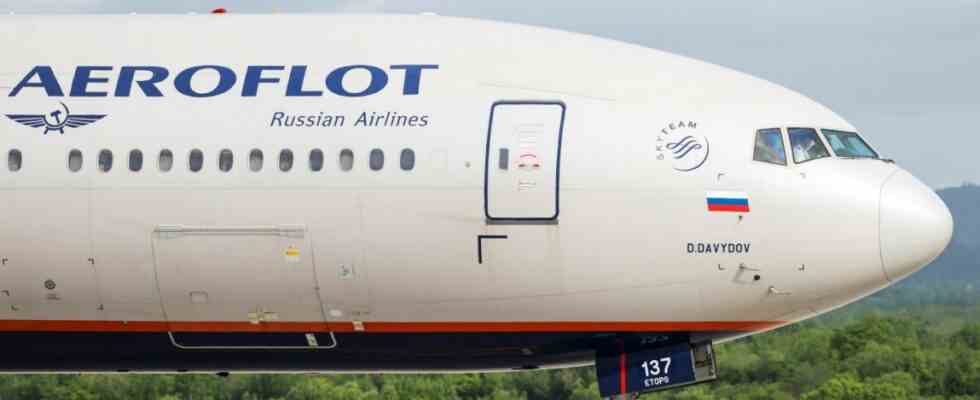For the Russians, the world has become quite small since February 24th. And where they can theoretically fly to, yes, it is slowly becoming difficult to get there in practice. Because 80 percent of the planes of the Russian airlines come from the West. And because of the economic sanctions, spare parts are slowly running out for them.
In order to be able to take off at all, there are now drastic measures: Intact planes are cannibalized. In April it became apparent that it would come to this: If necessary, two thirds of all aircraft would have to remain on the ground to ensure the airworthiness of the rest, according to the Russian Ministry of Transport at the time. Then in June the recommendation to use some aircraft as a spare parts store. The Russian fleet is to be kept airworthy until 2025.
So now the first cases of aircraft cannibalism: According to the Reuters news agency, the state-controlled airline Aeroflot is planning a new, intact Airbus A350 and a sukhoi Superjet 100 have cannibalized. The latter is a Russian production – but with many Western components. An engine is said to have been dismantled from it as a spare part.
Aeroflot flights are being canceled, like here at Los Angeles Airport, because of the sanctions.
(Photo: Mario Tama/AFP)
Cannibalizing intact and expensive aircraft is economically devastating for an airline. Even now, Aeroflot can only survive with government support. The Russians cannot hope for spare parts deliveries from countries that have not imposed sanctions: companies in Asia and the Middle East, for example, must expect secondary sanctions from the West in this case. Each part is registered with a number, each buyer is reported to the manufacturer.
As proud as the Russians are of their aerospace industry, they are dependent on the West: Almost three-quarters of the airliners are built by Airbus or Boeing, and they also need Western spare parts. And they are serviced, correct, in the west. But because of the sanctions, there are neither spare parts nor the necessary regular maintenance and engineers – sooner or later the machines would have to remain on the ground.
There is a lack of simple wearing parts – without which one cannot fly
Aeroflot has long proudly advertised that it has the youngest fleet in Europe – mostly with Boeing (134) or Airbus (146) aircraft. They were quite new, so flight operations went well for a long time despite sanctions. But even brand-new planes are maintenance-intensive and need spare parts after about a year in order to be able to take off and land safely. Engines and state-of-the-art technology must be kept running. But sometimes there is also a lack of banal wearing parts such as brake pads and tires. The latter are the most stressed parts and must be replaced every 120 to 400 landings.
And the Russian airlines have another problem: the majority of the machines are only leased. If they land at a foreign airport, they can be confiscated because the sanctions have revoked their license. At least 78 Russian airmen have already been detained, most of them registered in Ireland.
So that the already damaged fleet does not shrink even more, many foreign destinations are no longer served at all. Aeroflot air traffic has decreased by a quarter. According to Flightradar data, 15 percent of the machines have not taken off since the end of July. Three of the seven Airbus A350 have been idle for more than three months. Other airlines are no better: Moscow Airport is the fifth largest in Europe. Since the Russian invasion of Ukraine, only ten countries have been served from here. Because the Russians can’t get much further anyway.

